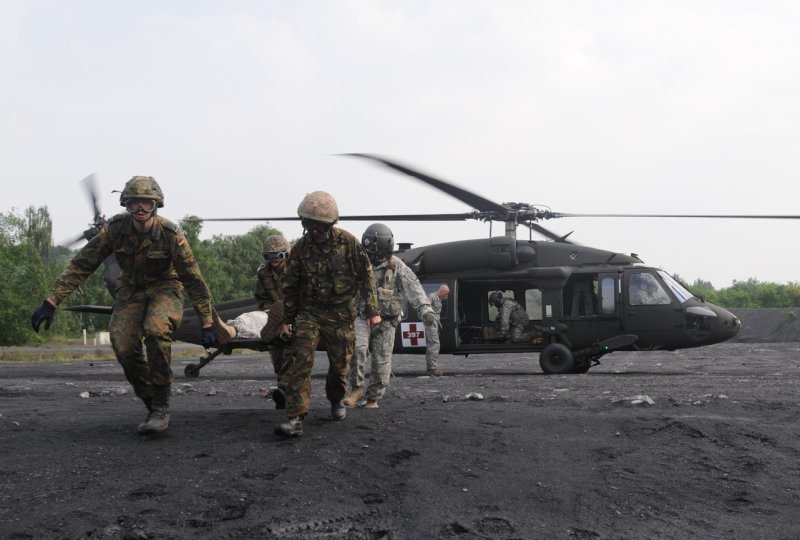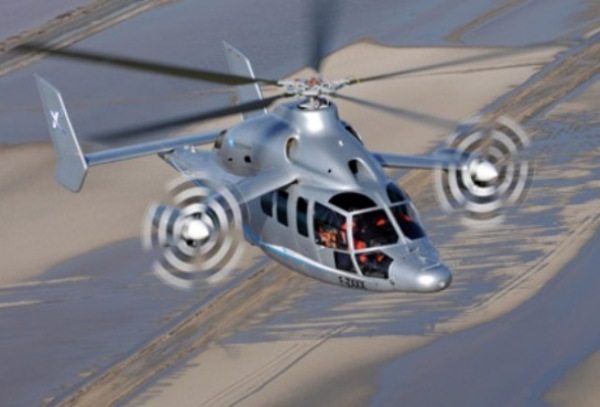Soldiers of the U.S. Army Europe’s 212th Combat Support Hospital, the United Kingdom’s 1st Medical Regiment, and the German Army’s 22nd Medical Regiment conducted a joint medical training exercise here, May 2-13, 2011.
Throughout the training, the coalition troops worked side-by-side, while testing their ability to collectively provide Role III medical capabilities in support of any future full-spectrum operation.
“This is designed for us to train as we fight. We are working together in missions abroad, and if we don’t use the opportunity to train together here in Germany, we could fail in our future missions,” explained Maj. Rene Grigat, the operations officer for the 22nd Med. Reg.
During the exercise, Soldiers trained on a variety of tasks from loading and unloading patients from a UH-60 Black Hawk helicopter and different field ambulances, to triaging and treating simulated casualties at the hospital.
The training has been excellent and is helping to build familiarity between the two medical units, according to Sgt. Milfred Williams, an operating room noncommissioned officer who has served with an Army forward surgical team in Afghanistan.
“We’re doing a lot of cross-training within our sections. It’s a great experience to be able to see how they run their operating room and they get to see how we run ours,” he said.
Lance Cpl. Paul James, a medic from the UK’s 1st Med. Reg. has served alongside American Soldiers in Iraq and said that the joint environment and overall training was very useful.
“I’ve been in [the Army] seven and a half years and this is the first time that I’ve been able to do any training like this,” said Paul. “We’ve gotten to practice a lot, and it’s definitely been a good experience working with other armies.”
A unique aspect of the exercise is the integration of the 212th CSH’s 10-bed Early Entry Package, or EEP, into the German field hospital. A highly mobile and adaptable Role III facility, the 10-bed set up has the ability to provide surgical, pharmacy, lab, x-ray and resuscitative trauma care within 12-24 hours of arriving on site.
During this exercise the 10-bed package attached onto the German facility, and the Soldiers were able to seamlessly embed into the hospital.
“It actually just plugged in to the back of the German hospital,” said Capt. Kyle White, the officer in charge of the 10-bed EEP. “There is no curtailment of services, no disruption in medical care. It brings a lot of capability to the fight very quickly.”
“Integrating into their hospital allows us to develop a partnership and enables us to work through some of the problems that we’re not just facing here, but challenges that are being seen regularly downrange,” said Capt. Kyle White, the officer in charge of the 10-bed EEP.
Overall, the joint medical training provided the German, American and British military medical units the opportunity to learn from each other and to grow as a cohesive team. The experience will undoubtedly pay dividends for any possible joint operations in the future, according to Grigat.
“We cannot work alone. We are always depending on other nations as other nations are depending on us,” said Grigat. “The main opportunity here is to see if we are interoperable in terms of material and if we are interoperable in terms of personnel.”
“I’m looking forward to having more joint and combined training. It has good value. As we say – train as you fight – and this is the way that we should do it every time to succeed in our missions,” Grigat said.











